HERE'S HOW WE DO IT
Our program is continuously moving 365 days a year! We use a very simple breeding process called Recurrent Mass Selection to maintain a large gene pool of valuable traits. We grow our plants under very stressful environmental conditions in North Florida. We select only the toughest and most beautiful plants each year for release to our plant industry partners. We collect seeds from the best plants in our trials, and those are planted the following year for the next crop.
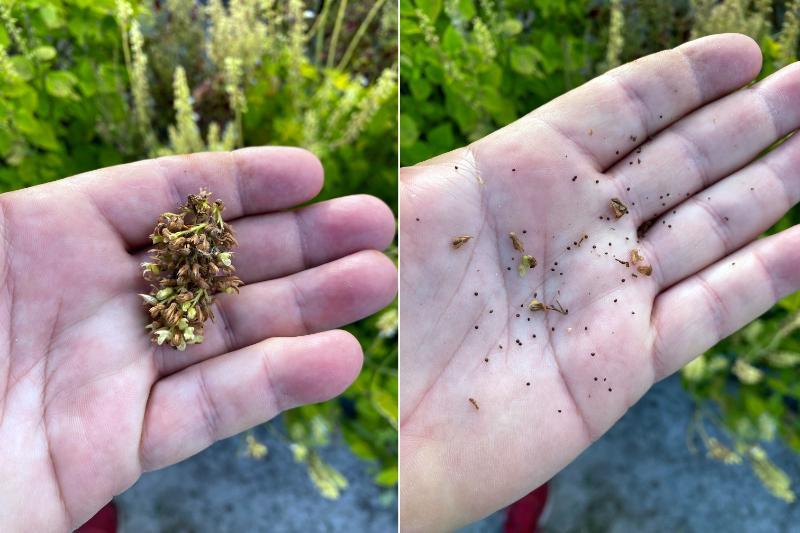
Seed collection: Collection of seeds during the late summer and fall from several open-pollinated elite parental genotypes in sun and shade trials. Seeds are only collected from plants flowering after August each year. Preliminary screening for seed germination and overall color variability of seedling populations is also conducted in late Fall to enhance color variability among the different seedling populations.
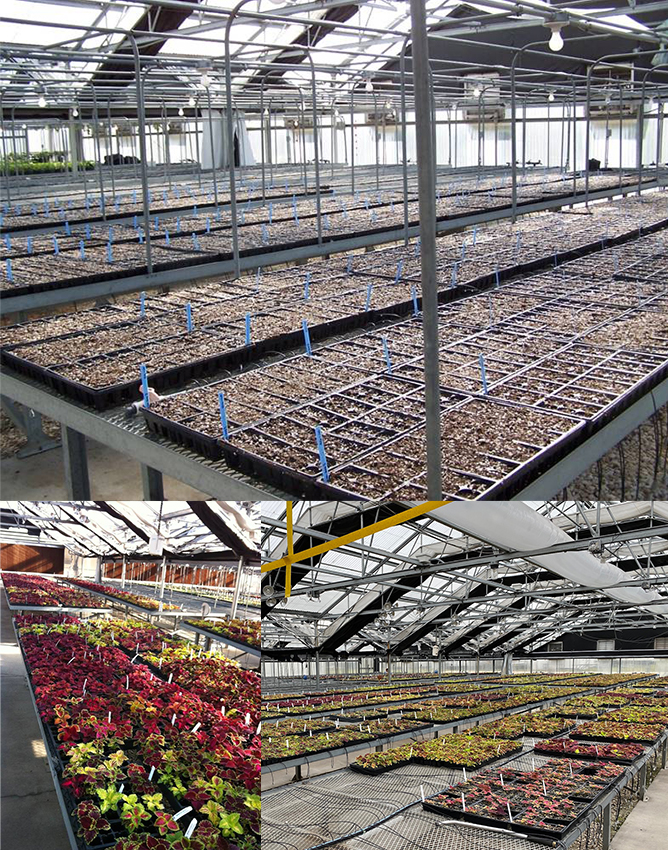
Seed planting and seedling selection: Seed planting occurs in early January each year with the growth of approximately 50-70,000 seedlings for five weeks in the greenhouse. Seedlings are selected in mid-February for bright and novel foliage color, plant vigor, and lateral branching. Seedling numbers are reduced to 1,500-2000, potted into one-gallon pots, and grown in greenhouses for further evaluation.
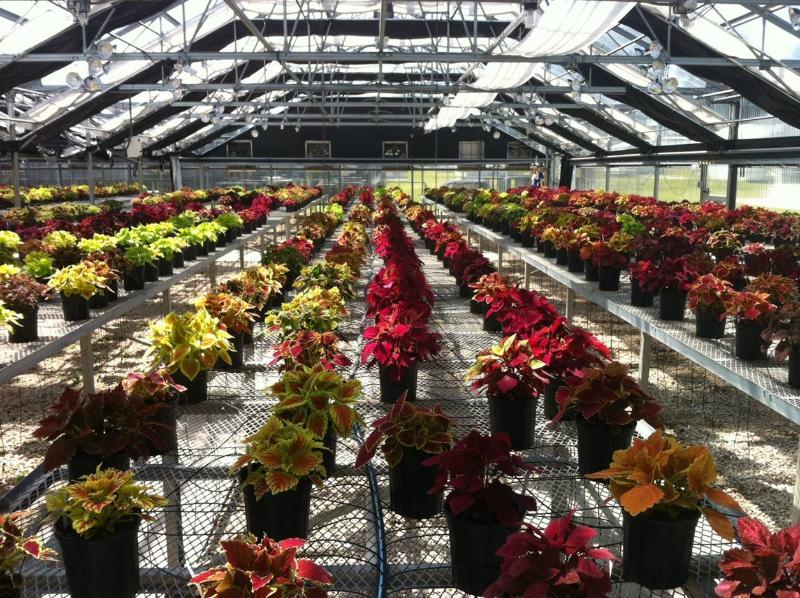
Plant selection: Seedlings are selected in late-March to early-April for stable foliage color, plant vigor, lateral branching, and lack of flowering. Seedling numbers are reduced to 1000, and these plants are shown in mid-April to our industry partners for them to make their yearly selections for further trialing.
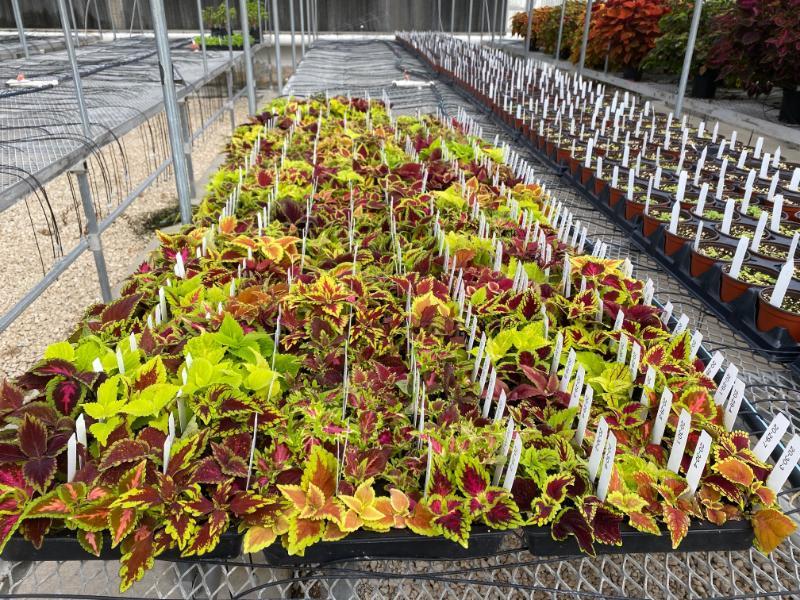
Vegetative propagation and greenhouse trials: Approximately 1000 unique seedlings plus another 300-500 ‘elite’ and commercial genotypes maintained from previous years are propagated by meristem tip cuttings for subsequent greenhouse and field trials throughout the Summer and Fall. Greenhouse crops of elite genotypes are grown throughout the year as we maintain stock plants of elite genotypes through vegetative propagation.
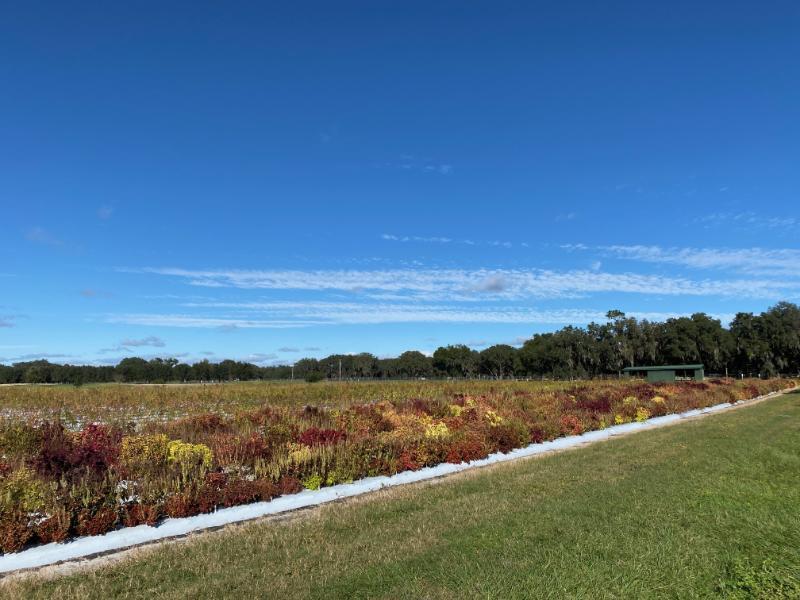
Sun field trial: This trial is held from May to December in Citra, FL. The main purpose for this trial is to discern if plants are tough enough to withstand adverse conditions. Three plants each of 1300-1500 genotypes are propagated and planted in-ground beds with plastic row cover at Citra, FL in full sun. Data are collected for foliage color intensity, plant vigor, branching, and flowering using a 1-5 scale for each trait. These ratings are then summed to produce a final overall score for each genotype for the trial.
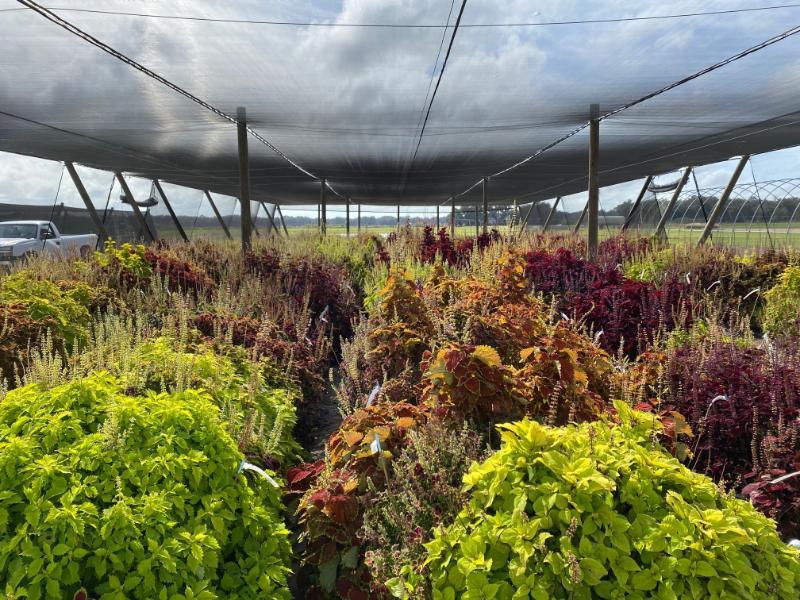
Shade field trial: This trial is held from June to December in Citra, FL. The main purpose for this trial is to provide a protected location for open-pollinated seed production, and to discern which genotypes perform best in a partially shaded environment. One plant each of 1300-1500 genotypes are propagated and planted in-ground beds under 30% shade in Citra, FL. Data are collected for foliage color intensity, plant vigor, branching, and flowering using a 1-5 scale for each trait. These ratings are then summed to produce a final overall score for each genotype for the trial.
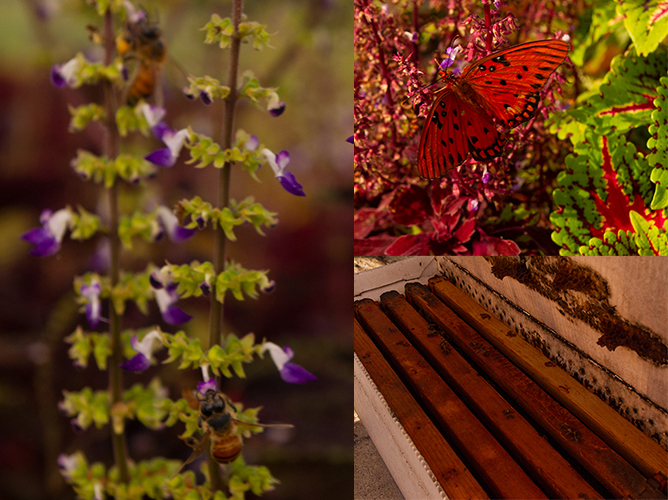
Little helpers: Honey Bees, supplied by the IFAS/UF Honey Bee Research and Extension Lab, and butterflies, as well as other natural mechanisms, do their part in open-pollinated seed production at Citra, FL field trials.
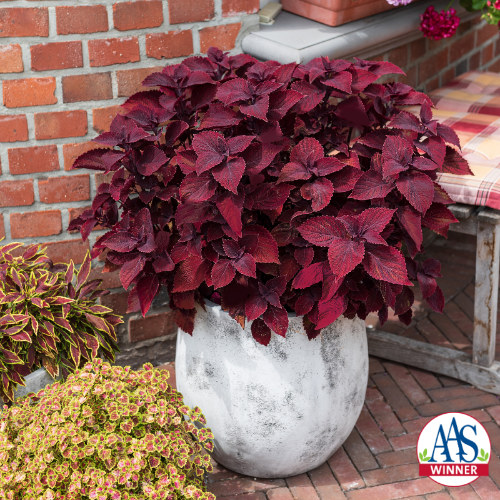
Final selection: After numerous evaluations, the highest-scoring ‘elite’ seedlings with bright and stable foliage colors, superior vigor, good branching, and late flowering are selected. Overall numbers of elite genotypes are reduced to ~300 for carryover into the next season. Ultimately, we do not release any new cultivars until our plant industry partners decide they want to commit to going to market with a new plant.
